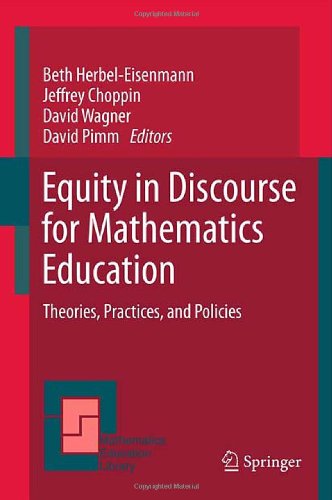

Most ebook files are in PDF format, so you can easily read them using various software such as Foxit Reader or directly on the Google Chrome browser.
Some ebook files are released by publishers in other formats such as .awz, .mobi, .epub, .fb2, etc. You may need to install specific software to read these formats on mobile/PC, such as Calibre.
Please read the tutorial at this link: https://ebookbell.com/faq
We offer FREE conversion to the popular formats you request; however, this may take some time. Therefore, right after payment, please email us, and we will try to provide the service as quickly as possible.
For some exceptional file formats or broken links (if any), please refrain from opening any disputes. Instead, email us first, and we will try to assist within a maximum of 6 hours.
EbookBell Team

4.7
76 reviewsThis book explores the connection between the ways people speak in mathematics classrooms and their opportunities to learn mathematics. The words spoken, heard, written and read in mathematics classrooms shape students’ sense of what mathematics is and of what people can do with mathematics. The authors employ multiple perspectives to consider the means for transformative action with respect to increasing opportunities for traditionally marginalized students to form mathematical identities that resonate with their cultural, social, linguistic, and political beings.